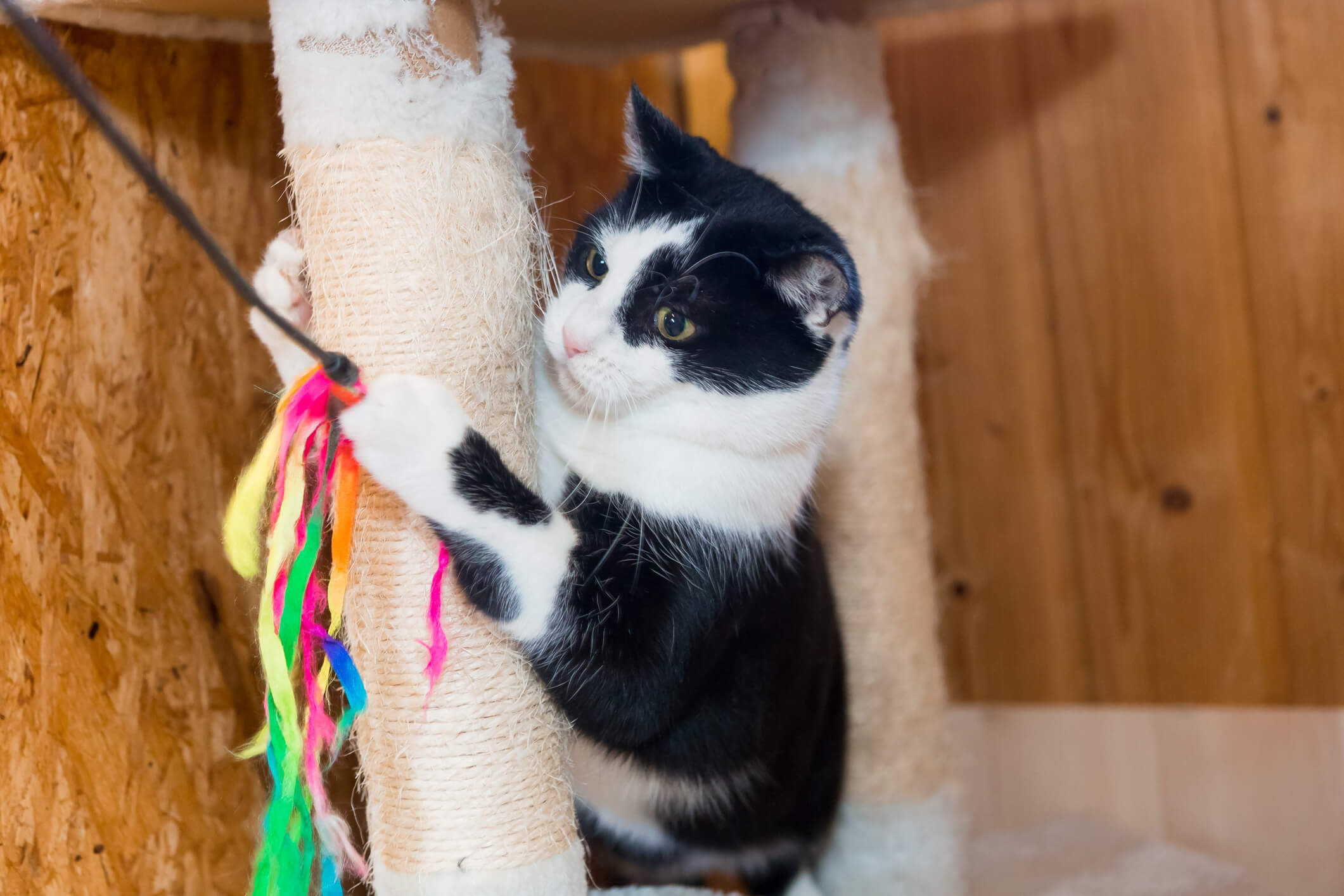
Help Support Inflammation in Your Cat With These 8 Tips
As devoted pet owners, ensuring the wellbeing of our feline companions is a top priority. Unfortunately, there’s a common and invisible problem that can significantly impact your cat’s health: chronic inflammation.
Inflammation is the body’s natural response to injury or infection, playing a crucial role in healing. However, when this response goes on for longer than necessary, it transforms into chronic inflammation. Allowing this inflammation to go on unchecked can lead to a range of health issues, including serious disease, joint pain and cognitive decline.
The good news is, there are many holistic measures you can take to help reduce chronic inflammation in your cat’s body. Check out these eight tips that can make a world of difference.
1. Optimal nutrition
Just like with humans, a cat’s diet plays a leading role in their overall health, including managing inflammation. While every cat is different, the best diet for your feline friend is a high-quality, balanced one made from food that’s rich in omega-3 fatty acids, antioxidants and natural anti-inflammatory compounds.
- Omega-3 fatty acids, like those found in fish oil, can help to regulate the body’s inflammatory response.
- Antioxidants support and regulate the immune system, which is what controls inflammatory responses. Therefore, they’re crucial in managing inflammation as well as its harmful side effects, including free radical damage.
Foods filled with low-quality fillers and grains can worsen inflammation, so they should be avoided.
2. Herbal supplements
Nature’s pharmacy offers a range of herbal supplements that can help mitigate inflammation in cats. Turmeric, for instance, contains curcumin, a potent anti-inflammatory compound. You can also add omega-3s or antioxidants via supplements if your pet’s food doesn’t contain enough.
While herbal supplements are typically fine for healthy cats, it’s important to consult your vet before introducing them into your cat’s everyday routine. Your vet can advise you on the appropriate dosage, ensure it won’t interfere with any existing medications and address any other potential concerns.
3. Optimal weight
Excess weight can exacerbate inflammation in cats, particularly in their joints. Keeping your feline companion at a healthy weight can reduce the strain on their joints and help manage inflammation. Ensure your cat gets regular exercise and feed them portion-controlled meals to prevent excessive weight gain.
4. Stress management
Stress and inflammation often go hand in hand. Cats can experience stress due to changes in their environment or routine and interactions with other animals. Create a calm and predictable environment for your cat to help reduce their stress and, consequently, inflammation. Consider using pheromone diffusers or providing safe spaces where your cat can retreat and relax.
5. Environmental enrichment
A happy and mentally stimulated cat is less likely to experience stress-related inflammation. Here are a few ways to provide environmental enrichment for your cat.

- Interactive toys: Toys that mimic prey or require problem-solving keep your cat engaged and mentally active. Puzzle feeders or toys that dispense treats can provide both entertainment and a challenge.
- Vertical spaces: Cats love to climb and perch. Provide shelves, cat trees or window perches to give your cat opportunities to explore and observe their surroundings from different vantage points.
- Hide and seek: Hide treats or toys around the house for your cat to discover. This lets them tap into their natural hunting instincts and keeps them active.
- Scratching posts: Scratching is essential for your cat’s physical and emotional welbeing. Offer a variety of scratching surfaces to satisfy their urge to scratch and stretch.
- Safe outdoor access: If possible, create a safe outdoor space for your cat to explore. A secure enclosure or “catio” allows your cat to experience the outdoors without the risks.
6. Adequate hydration
Every living being needs proper hydration to stay healthy, and cats are no exception. Your cat needs to stay hydrated to keep inflammation in check, so make sure they have access to fresh water at all times. Wet cat food can also contribute to your feline friend’s water intake.
7. Regular acupuncture
Acupuncture—a holistic practice rooted in traditional Chinese medicine—has gained popularity as a complementary therapy for pets. This technique involves inserting thin needles into specific points on the body to stimulate energy flow and promote healing. Acupuncture can be used to manage pain and reduce inflammation in cats. However, it’s crucial to work with a trained and experienced veterinary acupuncturist.
8. Routine veterinary check-ups
Regular visits to the veterinarian can help catch and address any potential health issues early on. Your vet can also provide guidance on managing inflammation and suggest tailored approaches for your cat’s individual needs. They can create a plan that includes dietary changes, supplements, lifestyle adjustments and potential medical interventions, if needed.
Take a well-rounded approach to inflammation management
You already know that every cat is unique. What works to reduce chronic inflammation for one pet might not work for another. By taking a holistic approach, you can provide your feline friend with a comfortable and inflammation-free life.


